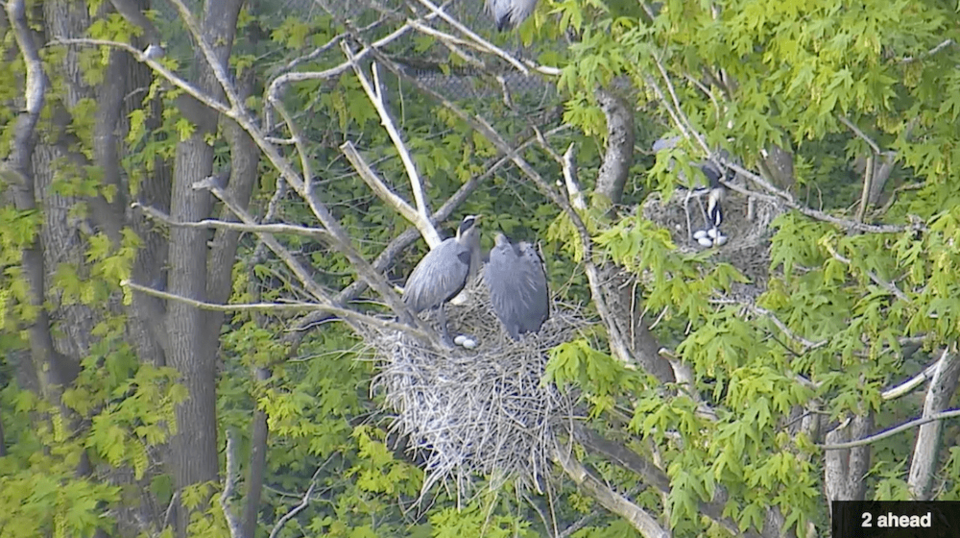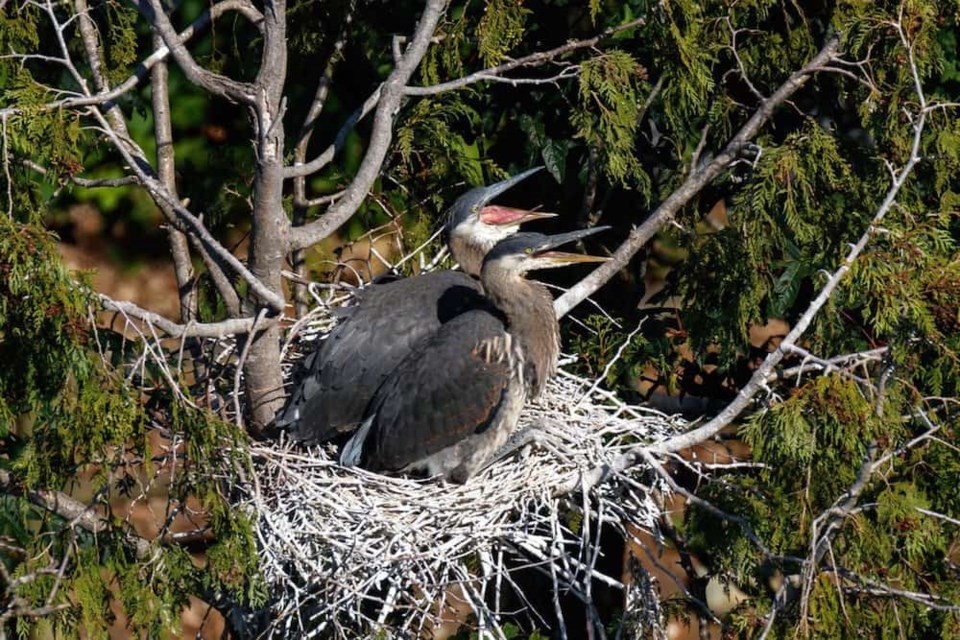Spring has sprung in Vancouver. The late season cherry blossom trees have bloomed, the days are getting longer, and the first Stanley Park heron chicks have hatched.
According to The Vancouver Park Board, the Stanley Park Ecological Society first noticed a hatchling on April 23. Now, there are a whopping 58 nests in the park with doting Pacific Blue heron couples tending to their young and incubating eggs.
This is the heron's 20th consecutive year in the city's largest park, and the colony is one of the largest urban colonies in North America.
Good News🎉: the first #StanleyPark heron chicks have hatched! @StanleyParkEco spotted the chicks this week with more to arrive soon. Watch all the action live on the Heron Cam: https://t.co/FM11Y2aYx6 #herontalk #vancouver pic.twitter.com/2AndXrwvke
— Vancouver Park Board (@ParkBoard) April 23, 2020
Residents can get a closer look at the herons’ nesting activity throughout the breeding season with the park board’s Heron Cam. The cam allows users to view the colony from March until the end of the summer breeding season. Using the tool, you can view the herons at full screen and control what nests you want to see and at what distance.
According to the Heron Cam web page, male herons generally incubate during the day while the females incubate at night. They note that the, "hatchlings are comical because they have little mohawks, and they sway their necks as if they have no control."
 Generally, the male incubates during the day and the female incubates at night. Photo: Heron Cam
Generally, the male incubates during the day and the female incubates at night. Photo: Heron Cam In previous years, the first eggs were spotted by the end of March, with the first hatchlings emerging a month later. Heron fledglings usually leave after 60 days, or eight to nine weeks from hatching.
The herons are long-time residents of Stanley Park. The first documented breeding in the park was in 1921 near Brockton Point. They moved into the current location in 2001.
You can access the Heron Cam HERE.
- With files from Jessica Kerr.



